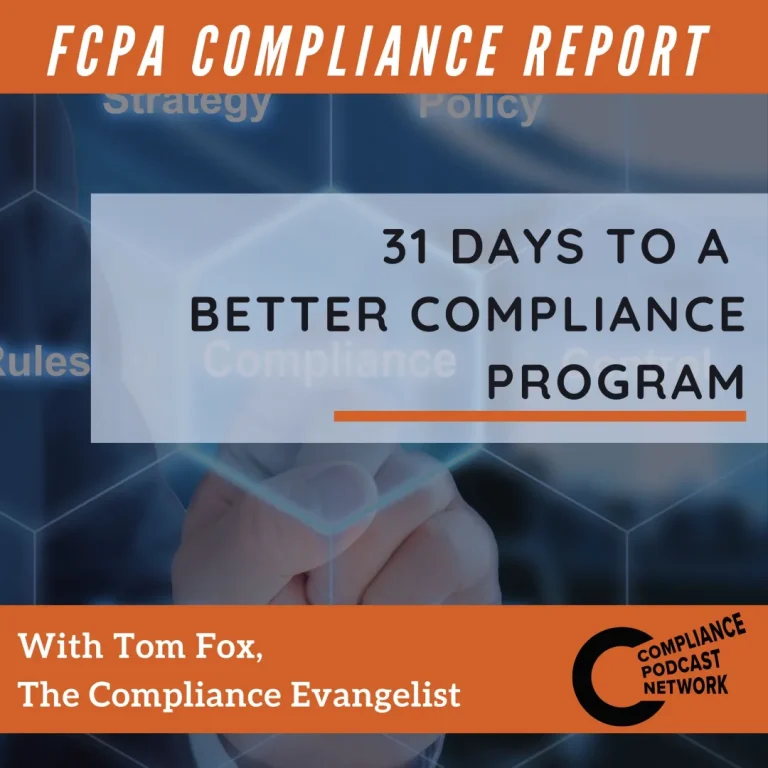Join Tom Fox in this episode of the 31 Days to a More Effective Compliance Program podcast to delve deeper into the significant role of HR in implementing compliance programs. Hopefully you now understand that many of the traditional functions of Human Resources (HR) can be seen as compliance internal controls. At every touchpoint in the lifecycle of the employment relationship there is a HR touchpoint. Fulfilling those touchpoints can be controls for compliance. If you think of multiple HR functions as compliance internal controls, one of the questions becomes how can you determine if HR is meeting the standards of a best practices compliance program? One place to start is with a gap analysis to determine what HR has in place that can facilitate your company’s compliance program.
The role of HR in implementing compliance programs is a critical aspect of maintaining best practices within an organization. Traditional HR functions can serve as compliance internal controls, and that every touch point in the employment relationship can serve as a control for compliance. Fox’s insights are derived from his extensive experience and deep understanding of the compliance and HR environment. He emphasizes the importance of conducting a comprehensive gap analysis and fostering collaboration between HR and business units to enhance the compliance program.
Finally, work with HR to create a consolidated Human Resources Compliance Audit Checklist that can be used to audit (and document) the company’s HR Compliance Program. The key to compliance, in my opinion, is having the proper structure to identify the issues, implement policies and procedures to address the issues, audit for compliance and “Document, Document, and Document”.
Three key takeaways:
- A gap analysis is a key component in the risk assessment process.
- The ultimate responsibility should lie with the business units and functional discipline to fully operationalize compliance.
- The role of the compliance department is to oversee, provide subject matter expertise and coordinate.
For more information, check out The Compliance Handbook, 4th edition, here.



